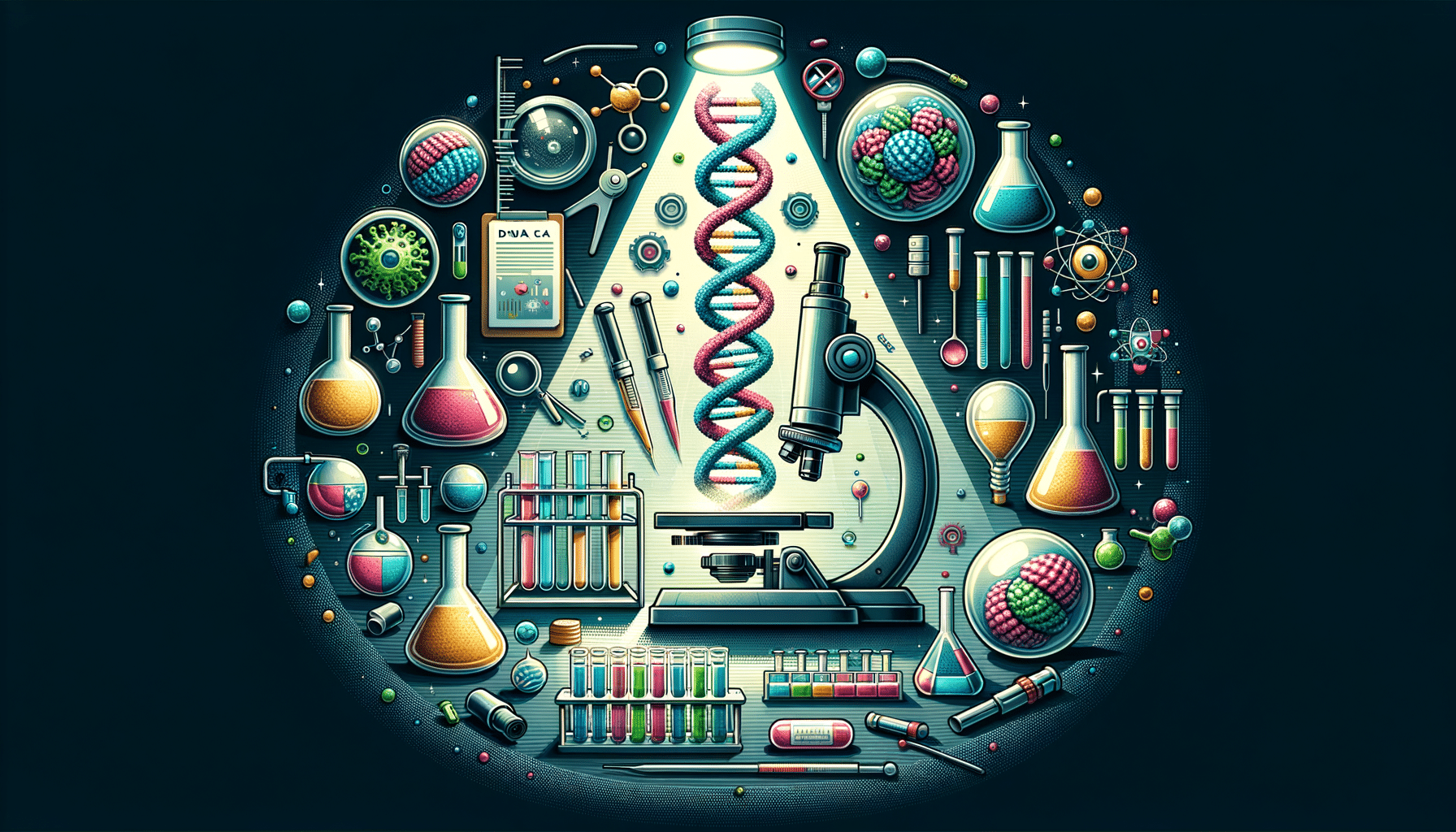Unlocking the Secrets of DNA Testing: A Comprehensive Guide
DNA testing offers a window into our genetic makeup, unlocking insights into ancestry, health, and identity.

Introduction to DNA Testing
DNA testing has become an integral part of modern science, offering insights into our genetic blueprint. It serves as a powerful tool in various fields, from healthcare to genealogy, and even in forensic science. The relevance of DNA testing is underscored by its ability to provide detailed information about an individual’s ancestry, health predispositions, and biological relationships. As technology advances, DNA testing becomes more accessible, affordable, and informative, making it an invaluable resource for individuals seeking to understand their genetic makeup.
The Science Behind DNA Testing
At the heart of DNA testing is the analysis of deoxyribonucleic acid (DNA), the molecule that carries the genetic instructions for life. DNA is composed of two strands that coil around each other to form a double helix, made up of four types of nucleotides: adenine, thymine, cytosine, and guanine. The sequence of these nucleotides encodes the genetic information that determines everything from eye color to susceptibility to certain diseases.
DNA testing involves extracting DNA from cells and analyzing specific regions that are known to vary among individuals. These regions, known as genetic markers, can provide information about a person’s ancestry, health risks, and even physical traits. There are several types of DNA tests, including autosomal DNA tests, mitochondrial DNA tests, and Y-DNA tests, each serving different purposes.
- **Autosomal DNA tests**: Examine chromosomes 1-22 and can provide insights into ancestry from both maternal and paternal lines.
- **Mitochondrial DNA tests**: Focus on the mitochondrial DNA passed down from mother to offspring, useful for tracing maternal lineage.
- **Y-DNA tests**: Analyze the Y chromosome, which is passed from father to son, helping trace paternal ancestry.
Applications of DNA Testing
DNA testing has a wide range of applications, each offering unique benefits. In the realm of genealogy, DNA tests allow individuals to trace their ancestry and uncover familial connections across the globe. This has led to a surge in interest in personal heritage and family history research.
In healthcare, DNA testing plays a critical role in identifying genetic predispositions to certain diseases, allowing for personalized medicine approaches. By understanding an individual’s genetic risks, healthcare providers can recommend preventive measures or tailor treatments to improve patient outcomes.
Forensic science has also been revolutionized by DNA testing, providing a reliable method for identifying individuals involved in criminal activities. DNA evidence can link a suspect to a crime scene or exonerate those wrongfully accused, making it a cornerstone of modern law enforcement.
Ethical Considerations in DNA Testing
While DNA testing offers numerous benefits, it also raises important ethical questions. Privacy concerns are paramount, as individuals must consider who has access to their genetic information and how it may be used. Many companies that offer DNA testing services have policies regarding data sharing and storage, but users should be vigilant in understanding these terms.
There are also concerns about the potential for genetic discrimination, where individuals may face bias based on their genetic predispositions. Laws such as the Genetic Information Nondiscrimination Act (GINA) in the United States aim to protect individuals from such discrimination, but the evolving nature of genetic technology continues to challenge existing legal frameworks.
Finally, the accuracy and interpretation of DNA test results can vary, leading to potential misunderstandings or misinterpretations. It is crucial for individuals to consult with healthcare professionals or genetic counselors to fully understand the implications of their DNA test results.
The Future of DNA Testing
The future of DNA testing is promising, with advancements in technology paving the way for more comprehensive and accurate analyses. As sequencing costs continue to decrease, DNA testing is becoming more accessible to a broader audience. This democratization of genetic information holds the potential to empower individuals with knowledge about their health and heritage.
Emerging technologies, such as CRISPR and other gene-editing tools, are expanding the possibilities of DNA testing. These innovations could lead to breakthroughs in treating genetic disorders and enhancing our understanding of complex genetic traits.
As we move forward, it is essential to balance the benefits of DNA testing with ethical considerations, ensuring that advancements are used responsibly and equitably. By doing so, DNA testing can continue to be a powerful tool for discovery and understanding in the years to come.